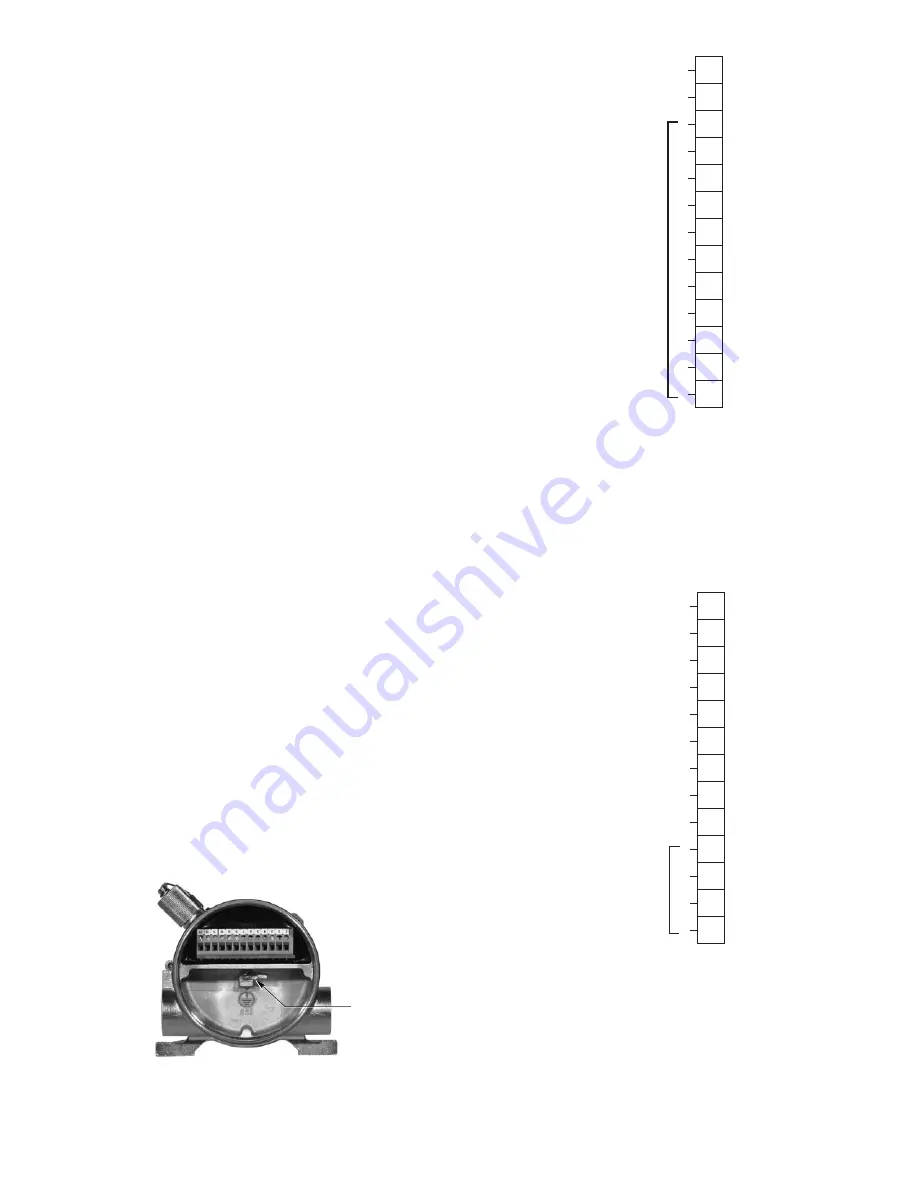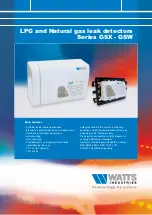
WIRING PROCEDURE
For systems using conduit, modules must be wired
using a short piece of suitable flexible conduit to allow
optical alignment of the modules. Ensure that all cables
are terminated properly. Open Path Eclipse screw
terminal torque range is 3.5–4.4 lb.-in. (0.4–0.5 N·m).
Cable shield, if used, should be properly terminated. If
not terminated, clip the shield wire off short and insulate
it within the detector housing to prevent the shield wire
from accidentally contacting the detector housing or
any other wire.
Figure 7 shows the wiring terminal strip located inside
the detector’s integral junction box.
Figure 8 shows the wiring terminal configuration for the
OPECL transmitter. (The transmitter requires only
operating power.)
Figure 9 shows the wiring terminal configuration for the
OPECL receiver without relays.
Figure 10 shows the wiring terminal configuration for the
OPECL receiver with relays.
Figures 11 through 14 show the 4 to 20 mA output of the
OPECL receiver in various wiring schemes.
Figure 15 shows the OPECL wired to a Model R8471J
Controller.
NOTE
The OPECL housing must be electrically
connected to earth ground. A dedicated earth
ground lug is provided for this purpose.
NOTE
For proper HART communication, it is required
that an analog signal loop resistance of 250 to 500
ohms be present at the receiver analog output
terminals. See Figure 16 for benchtop test wiring.
For OPECL systems using HART communication,
the maximum wiring distance is 2,000 feet.
13
95-8556
2.1
EARTH GND LUG
A2084
Figure 7—Terminal Strip Located Inside Wiring Compartment
–24 VDC
–24 VDC
+24 VDC
+24 VDC
CALIBRATE
+ 4-20 MA
– 4-20 MA
RS-485 A
RS-485 B
NO USER CONNECTION
1
2
3
4
5
6
7
8
9
10
11
12
13
A2196
Figure 9—Wiring Terminal Identification for OPECL Receiver
without Relays
–24 VDC
+24 VDC
NO USER CONNECTION
1
2
3
4
5
6
7
8
9
10
11
12
13
A2197
Figure 8—Transmitter Wiring Terminal Identification















































